From The Robert Frederick Smith Explore Your Family History Center at the National Museum of African American History and Culture
He had already seen his brother wave goodbye from the back of a dray, fried chicken in his pocket, tears in his eyes. Mother. Father. Didn’t remember the one. Never saw the other.
He was the youngest of three half-brothers (same mother—different fathers) sold to Garner and kept there, forbidden to leave the farm, for twenty years.
Once, in Maryland, he met four families of slaves who had all been together for a hundred years: great-grands, grands, mothers, fathers, aunts, uncles, cousins, children.
Half white, part white, all black, mixed with Indian.
He watched them with awe and envy, and each time he discovers large families of black people he made them identify over and over who each was, what relation, who, in fact,
belonged to who.
Toni Morrison’s Paul D in Beloved
Find an audio reading of this Black Eyed Juneteenth Celebration above.
Oklahoma, c. 1901 – Credit: Essence Magazine
Toni Morrison’s Beloved dedication reads, “Sixty Million and more” in reference to the enslaved Black bodies who, never emancipated in this life, but found freedom in the next. I think about Morrison’s four little big words—sixty million and more—whenever I fly forward and back like the mythical sankofa bird, going back to the past to fetch what I’ve missed, overlooked, or forgotten. With my head turned backwards and my feet pointed forward, my mouth tenderly carries an egg of wisdom, the words “…and more” chirp like greedy little hatchlings begging to be fed.
In a Time Magazine interview, the interviewer asked Morrison, “Beloved is dedicated to the 60 million who died as a result of slavery. A staggering number — is this proved historically?” And Morrison answered:
Some historians told me 200 million died. The smallest number I got from anybody was 60 million. There were travel accounts of people who were in the Congo — that’s a wide river — saying, “We could not get the boat through the river, it was choked with bodies.” That’s like a logjam. A lot of people died. Half of them died in those ships.
The question was an innocuous but telling one, as so many questions thrown at Morrison were. They often asked too much and not enough, and yet, always always we count on her to give an answer that is faithful to the truth – profound and unflinching. She (and Baldwin) had a knack for these micro-aggressive inquiries. But, as much as Morrison’s answer rightfully disquiets my soul, the interviewer’s question leaves me cold. I wonder how many dead Black bodies warrant her use of the word “staggering.” When I think of my own Black body, my answer is “just the one.”
While the dedication is to the dead, Beloved is a book for the living. I was living this morning as I researched the origins of family reunions in Black culture. Black family reunions are as much a part of our tradition as annual church picnics. Yes, other ethnic groups and cultures have them too, but ours have a tie to the past unlike any other. Broken apart by slavery and parted by the Great Migration, we families are the embodied manifestation of the sankofa, whose motto is “go back and fetch it,” or “go back and get that which you’ve forgotten,” or “in order to understand our present, we must know our past,” or, in my own words, “in order to see my face, I must go back and seek theirs.”
This is exactly what so many newly freed Black bodies did after emancipation. The Juneteenth “good news” gospel was carried on the migratory wings of the sankofa in the classified sections of newspapers and church bulletins across this land. We can trail their flight plans in the black ink letters of “Dear Editor… information wanted”, or “searching for,” or “inquiry for a relative.”
There are hundreds and hundreds of stories archived, and even more yet to be told – perhaps as many as “sixty million and more.”
In celebration of Juneteenth, I’d like to honor Morrison’s character Paul D who saw the miracle not of prodigals returning home but of love being restored.
*SPECIAL THANKS AND DEEPEST GRATITUDE TO THE ARCHIVISTS OF INFORMATIONWANTED.ORG FOR THE AMAZING GIFT OF THIS HISTORY
The 34th annual Black Family Reunion. Cincinatti OH. 2024
ROBERT COX REUNITED WITH HIS WIFE AFTER 24 YEARS
February 27, 1879
Richmond Daily Dispatch (Richmond, VA)
The quiet village of Midlothian [Midlothian] was the scene of an incident several days ago the like of which rarely occurs. In the spring of 1855, Robert Cox, a negro, belonging then to a gentleman in this vicinity [vicinity], was married to a woman of the same neighborhood. Several months after his marriage he was sold to a trader from Georgia, and was carried to that State, leaving his wife in Virginia. She, too, was sold a few years afterwards to a resident of another State. Though they were separated [separated] and each ignorant of the other’s whereabouts, they both concluded to start out in search of each other.
For more than six years they were separated [separated]; but the war being ended and
they being set at liberty, began the task of finding each other. The man having heard from several sources that his wife had left Virginia, thought it useless to visit his former [former] State; but after long years of search throughout several of the southern States, and not having any clue to her whereabouts, he concluded to visit his old home before it would be too late. But fortune favored him. His wife, having given up all hopes of meeting with him again, had returned here, and occupied the same old log cabin that she once resided in years before. When her husband came back again to the old cabin, and he beheld the one he had spent years of sorrow and toil endeavoring to find, they recognized one another, and the shout that arose from that cabin and rang through the forest near by will be remembered [remembered] by them as long as they live. After finding his wife he carried her down to Georgia to live, and they are at present residing in that State.
JAMES DOGAN FOUND HIS FIRST WIFE AND HIS FAMILY
July 26, 1871
Reading Times and Dispatch (Reading, PA)
POTTSTOWN has an Enoch Arden in the shape of a colored man named James Dogan, who was a slave prior to the rebellion, and, escaping into the Union lines, afterwards became [became] a soldier and fought all through the war. He became separated from his family, and not hearing from them for several years, subsequently married again. Recently he learned of the whereabouts of his first wife and family, and is about to return to them, his second wife giving her hearty consent.
JEFF FRIERSON AND MARY BURT ARE REUNITED AND REMARRIED AFTER A 44-YEAR SEPARATION
September 24, 1903
The Nashville American (Nashville, TN)
A somewhat romantic marriage occurred in colored circles last night. The facts about it are these: Before the Civil War, and in slave times, Jeff Frierson, a slave belonging to the Friersons
of this county, and Mary Burt, a slave belonging to Thomas Burt, lived together as man and wife under the old slave system of marriage. But a few years before the Civil War Mr. Burt sold Mary to an Arkansas man, who took her to that State, and there she has since resided, while Jeff still remained here.
A few days ago, however, Mary returned here on a visit to some of her relatives. Soon after her arrival she happened to meet Jeff, her one-time husband, whom she thought was long since dead.
At this meeting the old love was soon revived, and the two were reunited by legally constituted marriage bonds last night, Dr. Stephens, of the Methodist Episcopal Church, officiating.
Both have hosts of friends among the white people, who are glad to see them reunited after a separation of forty-four years.
GREEN MORGAN AND PRUDENCE CROAN REUNITED AND REMARRIED AFTER 30-YEAR SEPARATION
February 6, 1889
The Examiner (San Francisco, CA)
OLD, BUT STILL LOVING.
Remated After a Separation of Thirty Years.
CRUEL SLAVERY DAYS.
Uncle Green and Aunt Prudence Go Down to the Grave Together After All. February 5 – a marriage ceremony in the colored Methodist Church here today developed in an antebellum romance [romance] of more than the usual Enoch Arden tendencies. The contracting parties were Uncle Green Morgan, seventy years old, and Aunt Prudence Croan, sixty-eight. It was the second marriage between the two. In 1858, during slavery days, Prudence Morgan, the slave wife of Green Morgan [Morgan] of this place, was sold to a Louisiana planter [planter], separated from her husband and taken south.
YEARS ROLLED ON.
The war came and ended. Slavery became a thing of the past, but Morgan never heard of
his wife. Finally he gave her up for dead and married again. By this wife he had several children, all now grown up, two of them married [married] and with families of their own. Last year the second Mrs. Morgan died. Uncle Green began to primp and look out for a third matrimonial partner, when one day he received [received] a letter with a Texas postmark.
HEARD FROM AT LAST.
It proved to be from the first wife, sold thirty years ago as a slave- She was alone and well,
and wanted to join Green. She casually mentioned [mentioned] that she had married a man named Brown after the war and had emigrated to Texas and raised a family. Brown had died a few months ago and the children had married. Morgan at once sent for Prudence, and she arrived [arrived] here last week. It was necessary, of course, to have another marriage ceremony performed, and this was done yesterday.
ELIZA GEDDING (FORMERLY ELIZA FRY) SEARCHING FOR HER DAUGHTER SARAH FRANCIS BROWN
April 24, 1884
Southwestern Christian Advocate (New Orleans, LA)
MR. EDITOR––Allow me to inquire [inquire] for a relative of mine, it is my child; she was sold from me when about 10 years old. We were formerly [formerly] servants of Elizabeth Hoflers. Her name was Sarah Francis Brown. My name at that time was Eliza Fry. She was carried South by a man named McGill, and was sold to a man in Haywood named Harvey Curry; this was about 8 or 9 years before the rebellion. I had strict account that she was there up to that time. I have been seeking [seeking] for her ever since we have been free. We both resided in the city of Louisville, Ky. in which I still remain. She is my only child. My name at present is Eliza Gedding, residence 1536 Kentucky street, between [between] 15th and 16th streets, Louisville [Louisville], Ky.
Unidentified Minnesota Family
ELMIRA MILLS SEARCHING FOR HER MOTHER MILLIE MILLS AND SIBLINGS AILSEY MILLS, LOUISA MILLS AND ISHAM
June 30, 1881
Southwestern Christian Advocate (New Orleans, LA)
DEAR EDITOR—I wish information of mother, sisters, and one brother. Mother's name was Millie Mills; sisters, Ailsey and Louisa Mills. Brother Isham was the youngest; was owned by Jonathan Mills. He moved from Mississippi to Johnson county, Texas, during the war, near Alvarado. Jonathan Mills used to attend Court regularly in Buchanan. I judge by that that he was a lawyer. I am the oldest of the children living, My name was Elmira Mills. Was stolen from mother by Hosea Stephens, to whom I was hired, soon after freedom. Mother lived six miles away from me, with a family whose name I forget. This man Stephens told me that mother was dead. Any information concerning them would be thankfully received. Direct to Elmira Mills, in care of M. Henson, Glass box 275 1/2 Austin, Texas.
MARY ELLEN CHAPMAN SEARCHING FOR HER FAMILY
September 14, 1882
Southwestern Christian Advocate (New Orleans, LA)
DEAR EDITOR: I wish to inquire for my relatives, father, mother, sisters, brother, uncles, aunts, grandfather and grandmother. We all lived in Virginia. Mothers and children belonged to David Nolan at or near Flint Hill, Rappahanock county. Mother was Emily and father Henry Williams. He belonged to Gibb Fletcher and lived in London [Loudon] county. Mother and father were both sold long before the war, down South and apart. My three brothers were James, George, and Henry Williams. James was sold about eight years before the war to a man in Baltimore, the last time I heard of him. My sister was Sarah, my name Mary Ellen Williams, but I married and am now Mary Ellen Chapman. Sister was sold South too, and brother George and Henry were sold with me. We lived together until the close of the war. We were first sold to a runner, and he sold us to Mr. Williams, who moved with us to Mobile, Alabama. After the war, my brother George left, and I have never seen or heard of him since; and brother Henry lives with me yet. My grandfather was George Roots, grandmother Sarah, and my aunt Ellen Roots, uncles were George, James and Philip Roots. My grandfather bought all of his family, but my mother and uncle Philip, at Flint Hill Va., and moved all of them to to Muskingum county, Ohio. I heard that uncle George Roots was living in Green county, Ohio. Grandfather bought all from David Nolan long before the war and the last I heard from them they were all living at Zanesville, Ohio. I have never heard anything of mother, father, brother James and sister Sarah since the war. I heard that uncle Philip was sold to a man in Kentucky, before the war. Address, in care of H. Adams, No. 237 Howard street, New Orleans, La. MARY ELLEN CHAPMAN
JOSEPH GROSSE SEEKING INFORMATION ABOUT HIS MOTHER, MATILDA DAVIS’S (FORMERLY MATILDA JOHNSON) KIN
May 5, 1881
Southwestern Christian Advocate (New Orleans, LA)
DEAR EDITOR - I desire information of my mother's kin people. She left them in Alabama, near Midway or Five Points. Her father's name was Mack Hampton; mother's Jennie Hampton. We all belonged to Mr. Green Nalley. He sold mother to J. D. Johnson and mother married a man who belonged to Johnson named Phillip Johnson. Mr. Johnson brought us all to Texas before the war and turned us loose at the surrender. Mother had four brothers and three sisters - Berry, Anthony, Hodge, Hamp, Phillips Neally, Charlotte, Martha and Ann Neally. When Martha left there mother's name was Matilda Johnson, but she now goes by the name of Matilda Davis. Address me at Kildare, Texas. JOSEPH GROSSE.
Juneteenth Photo. National Museum of African American History and Culture
ROBERT WASHINGTON SEARCHING FOR ELIZA WASHINGTON AND HER DAUGHTER MAARY SUSAN WASHINGTON
April 4, 1898
Richmond Planet (Richmond, VA)
DO YOU KNOW THEM I would like to know the whereabouts of Eliza Washington, and her daughter Mary Susan Washington, who lived near Sparta, Caroline Co, Va. Her husband name was Titus Washington. They belonged to Tom Kidd at that place. I am the brother of Titus Washington and am very anxious to find them. They were living near that place Christmas, 1865 Any information will be gladly received by Robt. Washington, 919 31st St., Richmond, Va.
WILLIAM HENRY WASHINGTON SEEKING INFORMATION ABOUT HIS PARENTS BENTEY AND CHLOE WASHINGTON AND HIS BROTHER BENTY WASHINGTON, JR.
May 3, 1882
The Christian Recorder (Philadelphia, PA)
INFORMATION WANTED OF MY PARENTS, Bentey and Chloe Washington, and my brother Bentey Washington, Jr., a shoe-maker by trade. We belonged to one
John Lambeth, of Beaufort, S. C., and moved during the war to Blackwell, and
subsequently to Charleston, from which place, in 1865, I embarked for Liberia in the emigrantship "Golconda." I returned to America about nine months afterwards, but have been unable since to learn of the whereabouts of my relatives above mentioned. My parents were members of the Baptist Church. Any information concerning them will be gratefully received. WILLIAM HENRY WASHINGTON, Princeton, N. J.
ELIZABETH WILLIAMS SEARCHING FOR HER CHILDREN LYDIA, WILLIAM, ALLEN, AND PARKER
March 17, 1866
The Christian Recorder (Philadelphia, PA)
INFORMATION WANTED BY A MOTHER CONCERNING HER CHILDREN.
Mrs. Elizabeth Williams, who now resides in Marysville, California, was formerly owned together with her children: Lydia, William, Allen, and Parker, by one John Petty, who lived about six miles from the town of Woodbury, Franklin County, Tennessee. At that time she was the the wife of Sandy Rucker, and was familiarly known as Betsy,—sometimes called Betsy Petty.
About twenty-five years ago, the mother was sold to Mr. Marshal Stroud, by whom, some twelve or fourteen years later, she was, for the second time since purchased by him, taken to Arkansas. She has never seen the above named children since. Any information given concerning them, however, will be gratefully received by one whose love for her children survives the bitterness and hardships of many long years spent in slavery.
Preachers in the neighborhood of Woodbury, Tennessee, are especially requested to make inquiry, and communicate any information they may deem valuable, either by letter, or through the columns of the "Recorder."





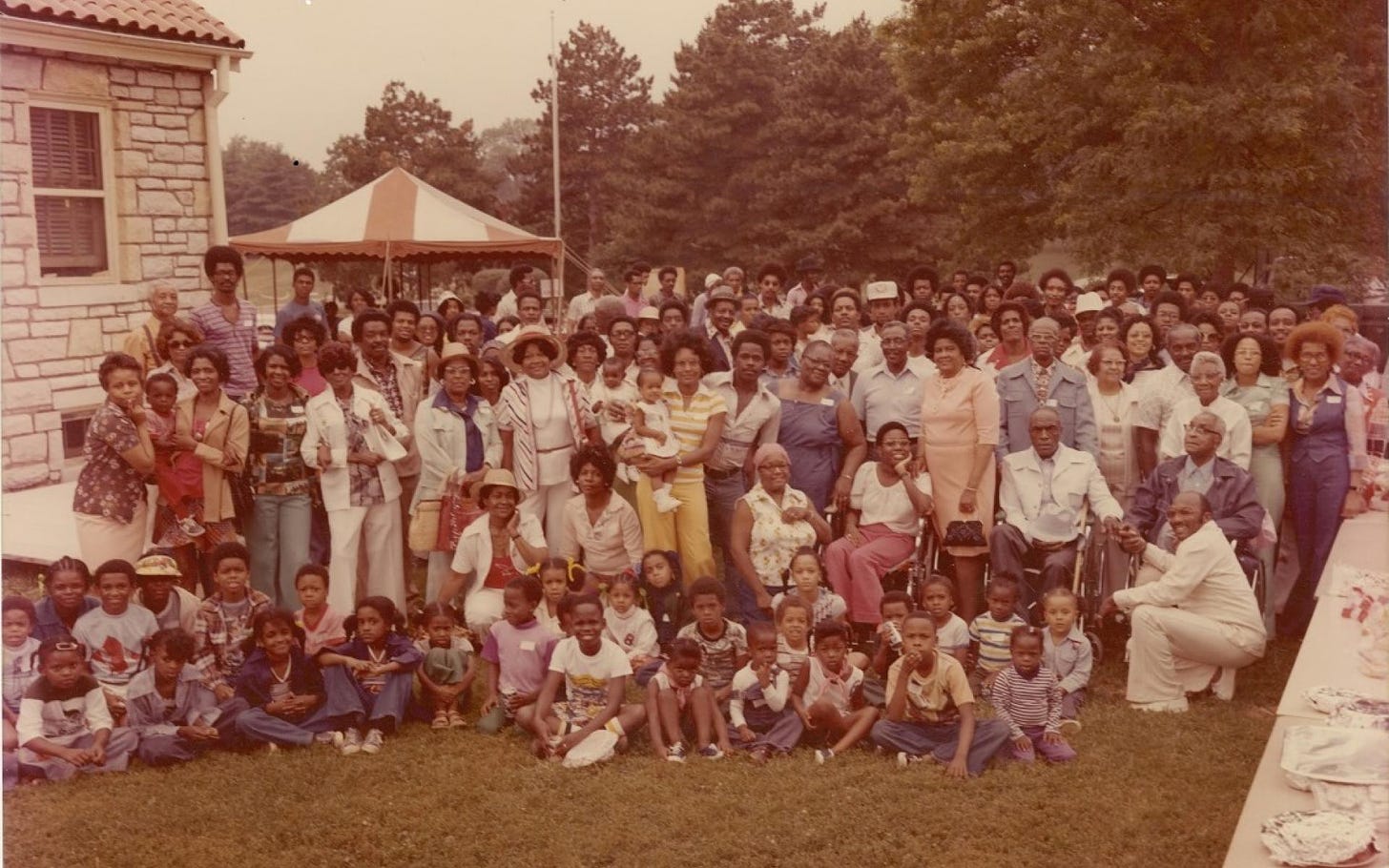
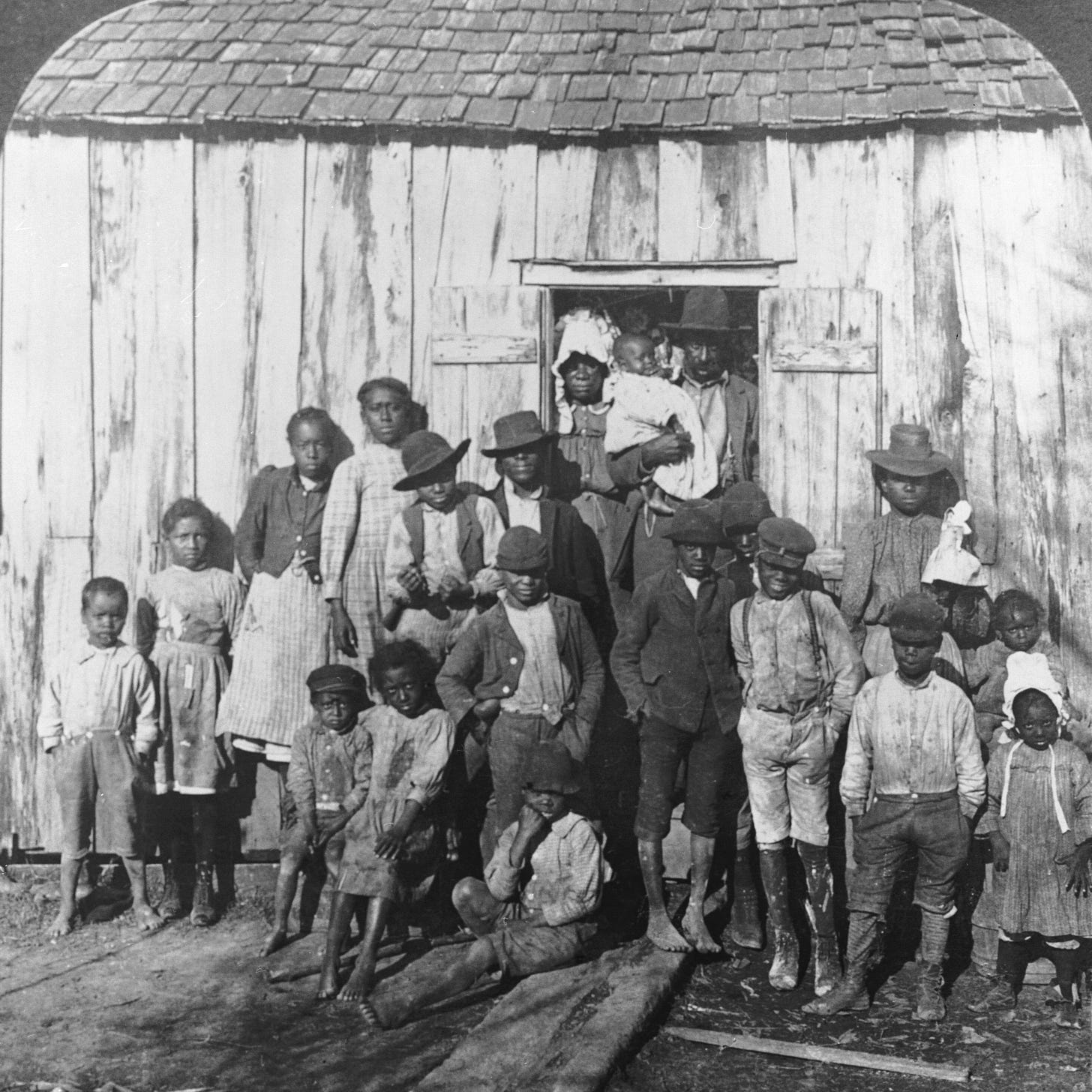
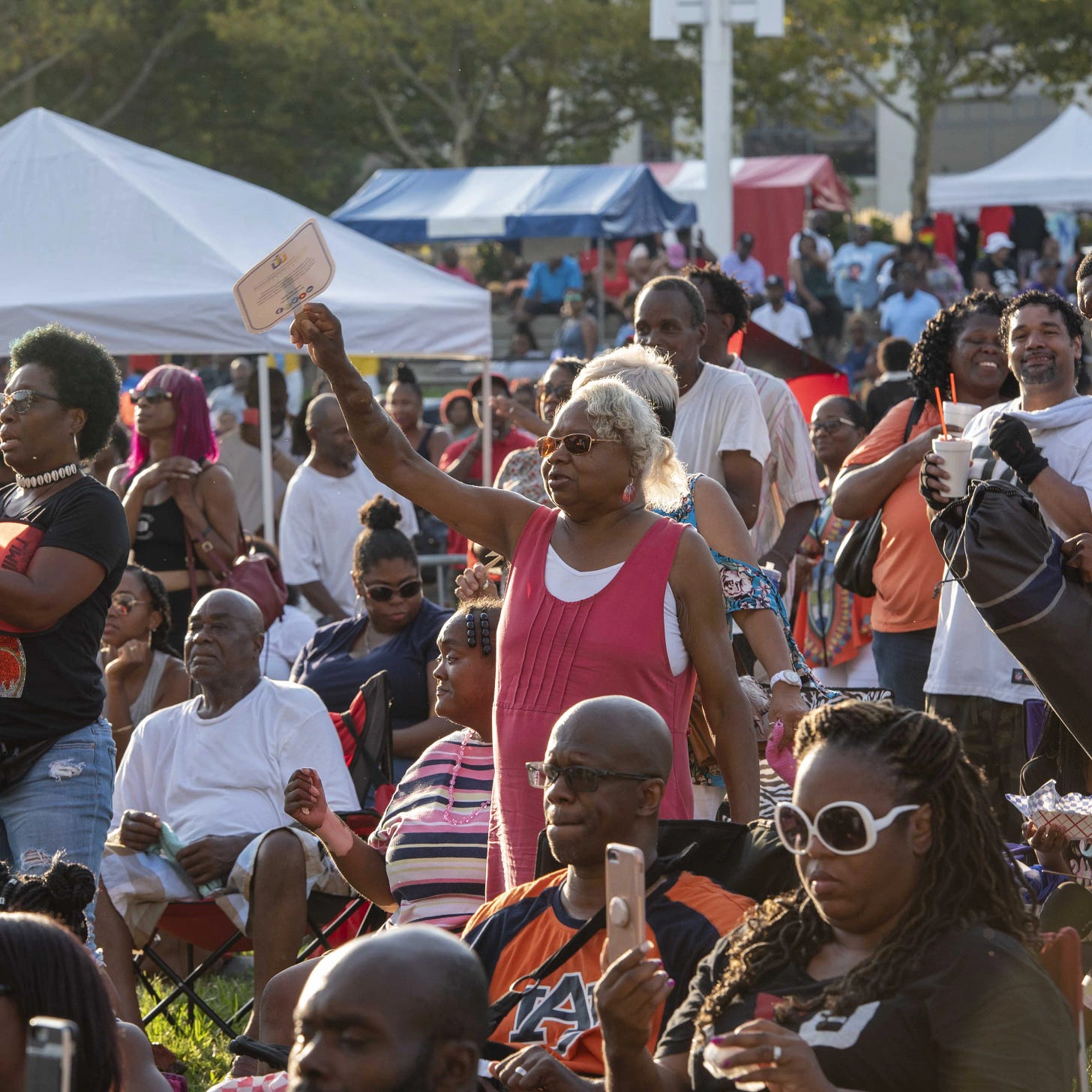
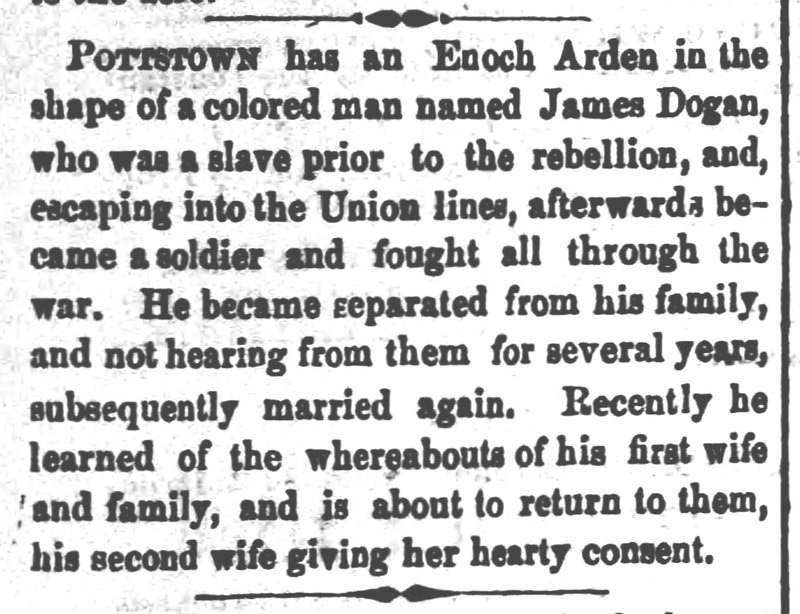
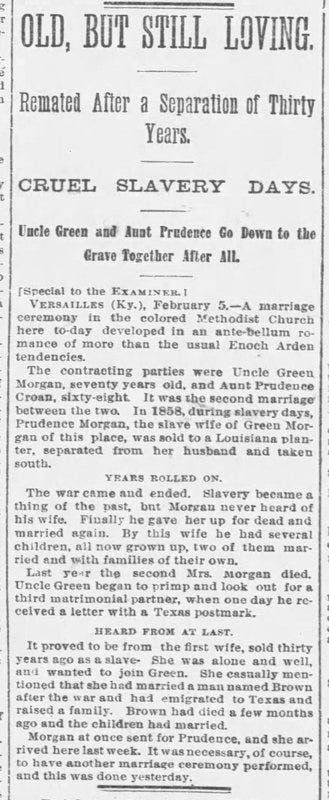
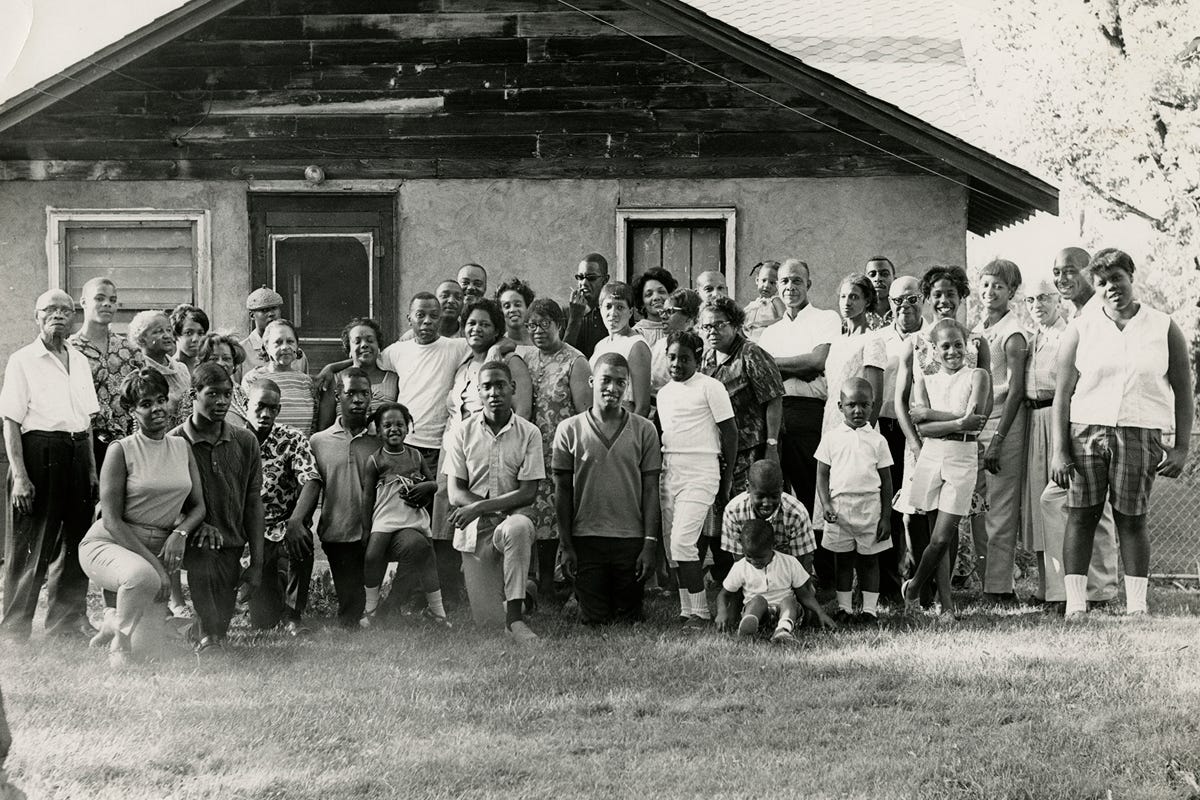
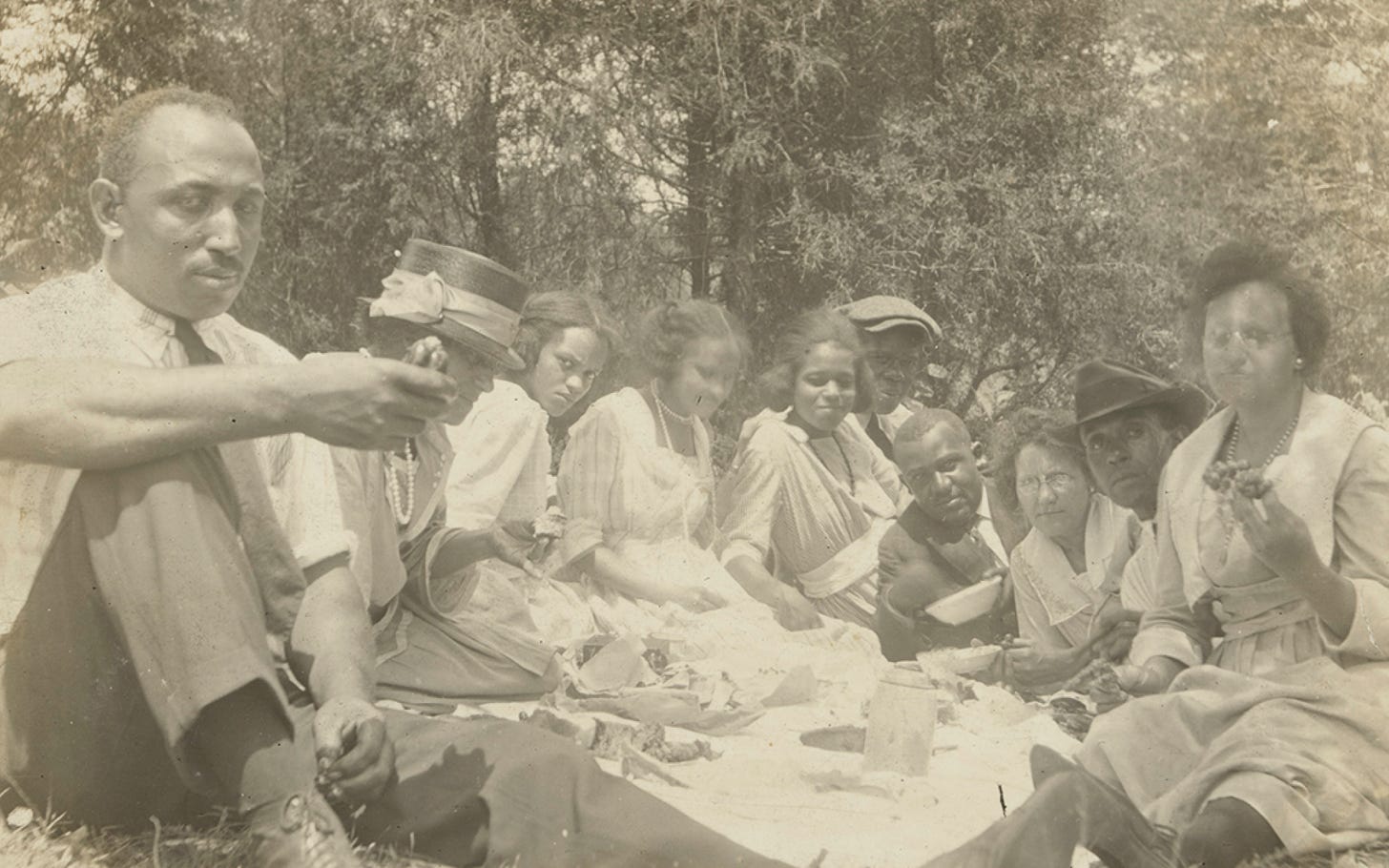
I am hopeful this finds you are celebrating with friends and family and not still shaken and mourning the lives lost, the lives separated, the lives not reunited that doing this post brought up. Saying the words outloud took a lot from you. The hardest thing is to say the hard thing, not just read it. I'm glad I listened. Hearing it touched me deeply.
Sobering, Marcie, and deeply appreciated. I'll admit to not knowing the story of Enoch Arden nor the doctrine created in its name, until now. Those reunions...! All of them so moving. I have no frame of reference other than empathy. Thank you for this.